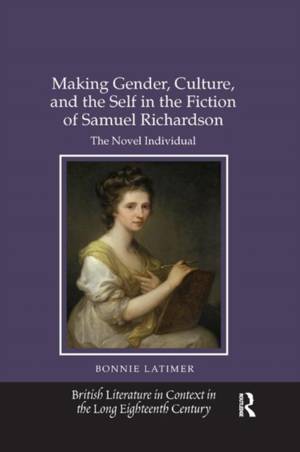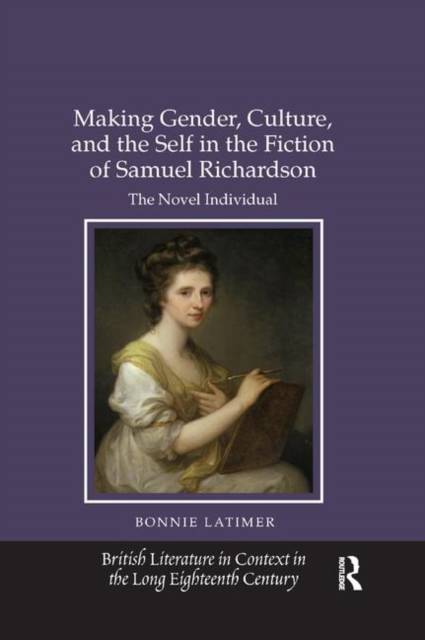
- Afhalen na 1 uur in een winkel met voorraad
- Gratis thuislevering in België vanaf € 30
- Ruim aanbod met 7 miljoen producten
- Afhalen na 1 uur in een winkel met voorraad
- Gratis thuislevering in België vanaf € 30
- Ruim aanbod met 7 miljoen producten
Zoeken
Making Gender, Culture, and the Self in the Fiction of Samuel Richardson
The Novel Individual
Bonnie Latimer
€ 83,95
+ 167 punten
Uitvoering
Omschrijving
Proposing that Samuel Richardson's novels were crucial for the construction of female individuality in the mid-eighteenth century, Bonnie Latimer shows that Richardson's heroines are uniquely conceived as individuals who embody the agency and self-determination implied by that term. In addition to placing Richardson within the context of his own culture, recouping for contemporary readers the influence of Grandison on later writers, including Maria Edgeworth, Sarah Scott, and Mary Wollstonecraft, is central to her study. Latimer argues that Grandison has been unfairly marginalised in favor of Clarissa and Pamela, and suggests that a rigorous rereading of the novel not only provides a basis for reassessing significant aspects of Richardson's fictional oeuvre, but also has implications for fresh thinking about the eighteenth-century novel. Latimer's study is not a specialist study of Grandison but rather a reconsideration of Richardson's novelistic canon that places Grandison at its centre as Richardson's final word on his re-envisioning of the gendered self.
Specificaties
Betrokkenen
- Auteur(s):
- Uitgeverij:
Inhoud
- Aantal bladzijden:
- 228
- Taal:
- Engels
- Reeks:
Eigenschappen
- Productcode (EAN):
- 9780367880231
- Verschijningsdatum:
- 12/12/2019
- Uitvoering:
- Paperback
- Formaat:
- Trade paperback (VS)
- Afmetingen:
- 156 mm x 234 mm
- Gewicht:
- 326 g

Alleen bij Standaard Boekhandel
+ 167 punten op je klantenkaart van Standaard Boekhandel
Beoordelingen
We publiceren alleen reviews die voldoen aan de voorwaarden voor reviews. Bekijk onze voorwaarden voor reviews.











